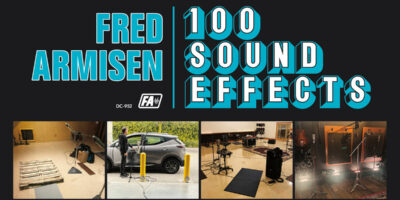Genre: Experimental Pop
Favorite Tracks: “Next Level Charli,” “Gone (featuring Christine and the Queens),” “Cross You Out (featuring Sky Ferreira),” “Click (featuring Kim Petras and Tommy Cash),” “Thoughts,” “Silver Cross,” “I Don’t Wanna Know,” “Shake It (featuring Big Freedia, CupcakKe, Brooke Candy, and Pabllo Vittar)” “February 2017 (featuring Clairo and Yaeji)”
Pop culture is in a drought. The monopolization of media mines our nostalgia and takes advantage of our sentimentalities, padding the experience of “new” content with familiarity. Especially in music, this is what brings us arbitrary, incoherent—and frankly, unnecessary—collaborations, like Taylor Swift and Brendon Urie, or Post Malone and Ozzy Osbourne. Why else would anyone put Ariana Grande, Miley Cyrus, and Lana Del Rey on the same song except to stir the software of recognition in the popular culture’s single, collective brain cell? The pop song algorithm is in place, and apparently all you have to do is insert the right names into its variables.
Which brings me to “The Pop Star of the Future,” Charli XCX. A left-field dance-pop aficionado, Charli XCX turned her back on pop conventionality after releasing radio hits like “Boom Clap” and “Break the Rules,” and instead shifted her sonic instincts toward the avant-pop scene by teaming up with A.G. Cook and the PC Music crew, the result sounding like pouring champagne onto a fax machine. Her third studio album, CHARLI, comes as a special moment in the namesake’s repertoire, following three years of mixtape releases and one-off singles. In particular, this release comes as a culmination of Charli XCX unraveling her emotions and sharpening her taste—not just in sound, but in collaboration.
Contrary to the typical pop superego, Charli has been no stranger to putting out emotionally undressed work, yet still retaining a pop ethos—2017 mixtape NUMBER 1 ANGEL being the prime example. These days, she doesn’t shy away from taking to social media and baring the anxiety, depression, or low self-esteem that haunts even the most ostentatious girl at the party. On CHARLI, in these moments musically, she’s alone on the track, and the vacancy from her clique is palpable only to the degree that her doubts and loneliness echo in the space left behind. On “Thoughts,” Charli asks, “Did I lose it all? / Did I fuck it up? / Are my friends really friends now, or are they far gone?” as a drone pitches up and down just enough to make the pain nauseating. Likewise, a cavernous ‘80s synth slowly lumbers on the ballad “I Don’t Wanna Know,” while Charli’s high, breathy vocals plead, “I know I’m losing you / So come on, tell the truth / Don’t you tell me you’re sorry / Don’t pretend you still want me / ‘Cause I don’t wanna know / I already know / What you’ve done, what you’ve done.”
The lyrics on CHARLI are poised to be her most emotionally sophisticated thus far, and still she does so without compromising in production. A.G. Cook and company bring hog-wild strobes and lasers to back her up, but what stands out the most about CHARLI is its lineup of features. But Charli never runs away from herself through the inclusion of other artists—they only ever serve to bring a specific attitude or energy out of herself, an augmentation of what she aims to express on her own. Sky Ferreira brings hazy coolness to “Cross You Out,” HAIM bring punctuated longing to “Warm,” and Clairo and Yaeji bring restraint and clarity to “February 2017.” It feels really special to experience the album’s most tender moments with musicians whose artistry is genuinely sympathetic to Charli’s personal expression. It might be titled CHARLI, but she’s definitely not riding this emotional wave alone.
Even after turning inwards, she never steps out of the house without her crew either. Yet, there’s no hierarchy between Charli or her collaborators, even in the album’s bossiest moments. Charli and Héloïse Letissier (of Christine and the Queens) are equal players on “Gone,” and you won’t think twice about it during the track’s dubby, anti-breakdown of its last minute (and that coda goes so hard). Likewise, it’s clear that Troye Sivan is co-piloting Charli’s same rocket, whether it’s dressing up like Jack and Rose from TITANIC and blasting Britney Spears (“1999”), or shooting off to an intergalactic next level (“2099”). These partnerships embody absolute symbiosis, turning CHARLI into a buoyant, tire-burning adventure through intimate emotional matrices, where the effort could have fallen flaccid and self-indulgent otherwise.
Charli’s mastery of artistic curation is best represented by the album’s two most assertive moments, the first being “Click,” which features German pop cutie Kim Petras and Estonian rapper Tommy Cash. Passing bars one at a time with unflappable braggadocio, the trio grind atop production that jumps between sounding like a computer-generated lullaby and a DDR mat being fed through a paper shredder (courtesy of A.G. Cook, Dylan Brady, and umru). “Click” isn’t just the chime of paparazzi shutters and cash registers, it’s the sound of her posse pulling up, spitting fire all over a track, and making “all you bitches fuckin’ wish you had this clique.”
Charli is so confident in her coterie that she hands the reigns over completely on “Shake It,” a track where she abdicates herself to a short-circuiting robot voice that pulses beneath the swagger of Big Freedia, CupcakKe, Brooke Candy, and Pabllo Vittar. Each verse is its own jaw-dropping epoch, a trip through the cocksure posturing of its bold characters, yet still underscored by Charli’s ambitious omnipresence… words merely do a disservice in trying to express how hard this song slaps, so you’re better off busting your eardrums listening to this on full volume. The final product is flawlessly complementary in the way that only Charli is capable of designing, and also perfectly encapsulates the spirit of the album—CHARLI isn’t a one-woman show, and she comes closer to herself because of it.















Comments